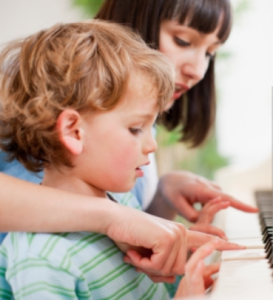While there’s arguably nothing that’s rewarding in quite the same way as being a parent, there’s no denying that the job comes loaded with challenges. From the moment your first child is born, you are on call 24 hours a day. Your life becomes inseparably entwined with that of this tiny person who needs constant care and supervision. As your children get older, they learn to care for themselves in some ways, but they also develop entirely new challenges. Some days, it feels like you’re juggling a dozen balls at once It’s absolutely worth every moment in the end, but it can still be incredibly difficult.
When you are suffering from depression and/or anxiety, there’s a whole new layer of complexity to the situation. In addition to juggling those dozen balls, it’s as though someone tosses you a jar of nitroglycerin. And a chainsaw. And a live bobcat. And they’re all on fire. Depression impacts every aspect of your life, and the stress of parenthood can sometimes trigger behaviors that might otherwise be easier to control. It’s a tough balancing act, because you want to be a caring parent to your kids, but you also may need to take some extra care of yourself.
Depression is nothing to be ashamed of.
Depression is different for everyone. For some people, it comes and goes in waves, with some days seeming relatively normal and others where it seems impossible to function. For other people, it’s more of a constant blanket that dampens senses and emotions. However it impacts you, though, it’s easy to feel guilty for not being able to be there 100% for your kids. It can make you feel ashamed or insufficient, almost like you’ve done something wrong. To put it simply, you haven’t.
If you are having problems coping with your depression, be willing to seek out the aid of a mental health care professional—if not for your own sake, then for your children’s. There’s nothing wrong with asking for help. It doesn’t make you weak, and it doesn’t mean that you’re a failure. What it means is that you want to be healthy so that you can give your children the best care possible.
Enjoy your vacations with your kids—but also away from them.
Whether you find a great deal on some discount Disneyland tickets or just want to drive the family across the country in an RV and enjoy the countryside, vacations are an opportunity to bond with your children. Remember, though, that they’re also meant to be a way for you to recuperate from work and the other cares of life. Sometimes, that means your children—and there’s nothing wrong with that! Just because you need a little time away from your kids doesn’t mean that you don’t love them. If you go on a cruise or visit a resort, there may be a child care service available (for a fee) to watch your children while you and your spouse have dinner together. Otherwise, if you have a friend or family member who would be willing, invite them along for the trip in exchange for their help with the kids.
Remember that the vacation is just as much for you as it is for them. Instead of fretting, and worrying, and expecting everything to be perfect, give yourself permission to enjoy yourself with your kids. And don’t worry about making every vacation a huge adventure to an exotic location. Some vacations can be theme parks and airplanes, but it’s fine if most of them are don’t require quite as much planning. An entire summer spent charting out, visiting, and selecting the best inground pools in Dallas could be more rewarding than carting the whole family to Orlando or New York for a couple days. It allows for more genuine experiences and gives you the opportunity to recover in the safe space you have built for yourself at home.
Talk about depression with your children.
There is a stigma tied to emotional issues that makes it difficult to talk to them, but be open and honest with your kids. Based on their age and ability to comprehend, talk freely with them about depression. Children are perceptive and will usually pick up on the fact that something’s wrong, but they won’t necessarily have context to understand what that means. Often, they will worry about their parent or even wonder if they did something wrong. Be willing to have a clear conversation with the child about what’s going on so that they will understand the situation and be better equipped to cope with things.
Be willing to forgive—both your child and yourself.
When you’re feeling the full effects of depression, it can be difficult to forgive. It may be tempting to blame your child for the stress you’re feeling, but even if your kids are behaving like little hellions, be willing to forgive. Perhaps an even more important—and more difficult—task, however, is forgiving yourself. If you slip up and make a mistake, don’t dwell on it. Recognize it for what it is, chalk it up to experience, and try to do better next time.


